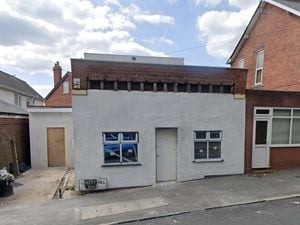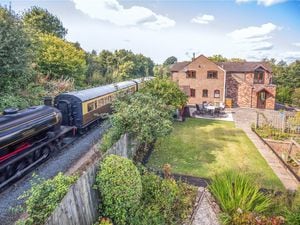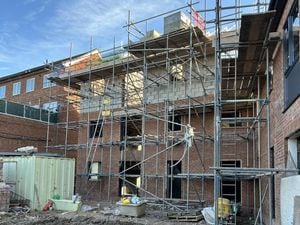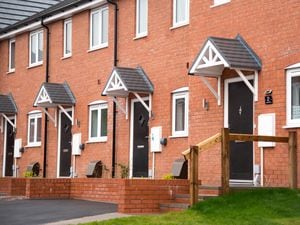Check out the homes delivered on the back of a lorry
Could these homes solve the housing crisis?
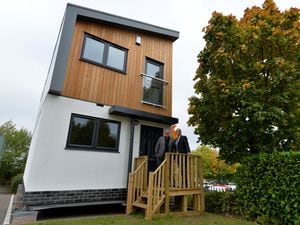
A Black Country company believes it has a solution to the housing crisis: factory built homes that roll off the production line with fitted kitchens and bathrooms, ready to be plugged in when they reach the building site.
Two factories could be turned over to full time production, churning out 1,000 homes a year and creating up to 700 new jobs.
Backed by the owners of the two factories – one in Cradley Heath and the other in Tyseley in Birmingham – Totally Modular aims to become the first privately owned company in the West Midlands making ready-to-go homes.
Completed units can be carried to building sites on the back of a lorry and craned into position, to have plumbing and other services connected and carpets laid, leaving them ready to move into just a week after arrival.
WATCH the construction here:
Currently Totally Modular is geared up to make the homes at its base on the Cradley Business Park, where managing director John Connolly's Kingfisher steel fabrication business is based. The housing units are based on a steel frame, with insulation, lining and plaster boarding, flooring, pipes, electrics, bathrooms and kitchens all installed as part of the production process.
But Mr Connolly said his partners at construction and fit-out company ALS, in Birmingham, are ready to convert their premises as part of plans to create a housebuilding business across both sites employing up to 900 people that could produce up to 1,000 two-bedroom homes a year.
The homes are produced as a ground floor module with fitted kitchen and lounge and a second unit with the bathroom and two bedrooms. The top floor is craned into position on top of the ground floor on the site and then fixed in place.
A two-bedroomed home would retail for around £100,000, not including land costs, although Mr Connolly said that price would probably come done by 10-20 per cent as production ramped up.
Express & Star comment: It’s easy to build case for prefab homes
At the moment the company is awaiting the go-ahead from planners for a housing association site in the South West and two sites in Coventry.
Totally Modular is currently focused on the affordable and social housing end of the market, "but the modular design of the homes mean we can create three or four bedroomed homes for private developers as well," said Mr Connolly.
"This isn't the only silver bullet to solve the housing crisis," he said. "But it could be one of them."
"At the moment the industry is totally maxed-out in terms of the capacity to build more homes; there aren't the bricks or the skilled builders. I believe we can increase that capacity with these factories.
"We can build homes cheaper, quicker and better using this method.
"At the moment we can make one module every six hours, so in 24 hours we can make two homes that will be 95 per cent or 96 per cent complete when they arrive on-site. We are already talking to Dudley College and the Manufacturing Technology Centre in Coventry about training for apprentices when we start full production.
"At the moment we have around 200 working at the two factories – a 40,000 sq ft site in Cradley and 60,000 sq ft in Birmingham – but over the next couple of years that should rise to around 900.
"We won't need fully trained plumbers or bricklayers, because this will be a production line process. As the module rolls along the line different teams will work on it, a bit like a wheel-change in Formula 1.
"The houses are guaranteed to have a lifespan twice the length of a mortgage, so 60 years, but are built to last at least 120 years. Many of the original pre-fabs built in the 1940s and '50s are still in use, and these are a lot more robust that they were.
"These are prefabs engineered for the 21st century."
The units are all built 10.3 metres long by 4.3 metres wide – roughly 36 ft by 13 ft – to fit on the back on a lorry. A two storey home weighs in at around 22 tonnes.
GALLERY: See inside the homes

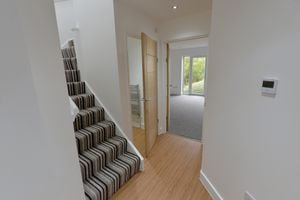
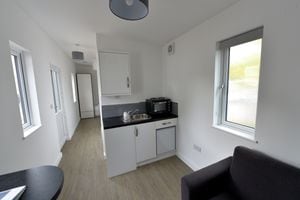
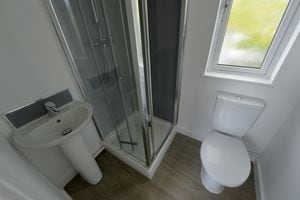

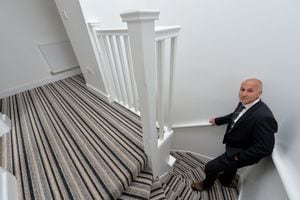
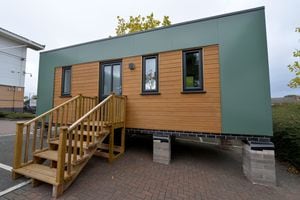
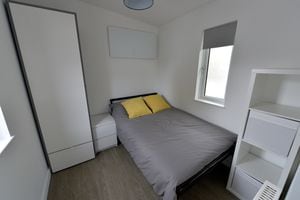
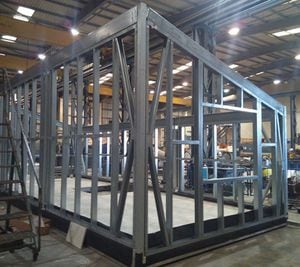
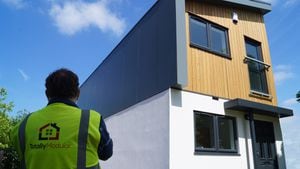
Mark Ferriday, the designer and technical director of Totally Modular, said: "Because of the steel framed design there is no sagging, it is very rigid. The modules conform to all the building regulations and they can be ready to move into 96 hours after arriving on a site."
"The project we are working on in the South West will see the homes fitted with solar panels and battery storage, so all the energy collected during the day is available for use in the evening.
"These are volumetric modular homes, not prefabs. We want to make the West Midlands the epicentre for modular construction. And these are quality homes, just not built with bricks.
"We have had 100 people around our showhome so far and the only negative comment was that the ceiling upstairs was too high to dust properly."
The team at Totally Modular have also come up with a 'micro-home', with a steel module divided into a bedroom, shower room and lounge with a kitchen area.
"Given the costs of putting homeless people up in bed & breakfast accommodation or hotels, we could instal these for £40 a night and it would give someone a permanent address.
"You could temporarily stack them on car parks or unused building land," said Mr Connolly.
"But we've had no interest at all, not from politicians, local authorities or homeless charities. I don't understand it."


